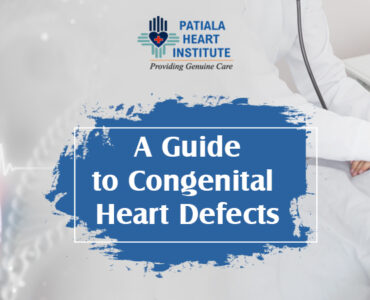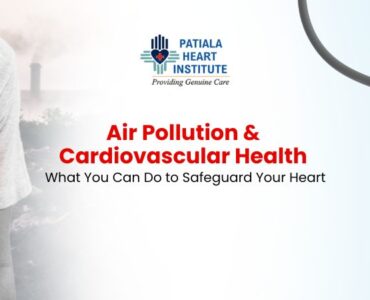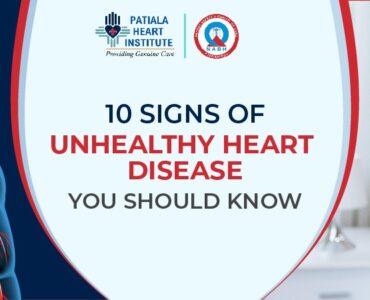In India, heart disease is responsible for approximately 25% of all deaths, and women account for a significant portion of these deaths. (Source: TOI)
Ladies, we get it– life can be a whirlwind. From juggling a demanding job to keeping up with your little one’s ever-busy schedules or perhaps dedicating extra hours to your side gig, it’s all too easy for your well-being to take a backseat.
But in today’s world, with its unique challenges, there’s never been a more critical moment to prioritize your heart health. And guess what? September isn’t just any month; World Heart Day is celebrated in this month, giving us the perfect opportunity to inspire you to put your heart health check front and center.
In a world that constantly demands our attention, it’s easy to neglect self-care. However, your heart health is your greatest asset, and nurturing it should be non-negotiable. It is even more serious than we assume. According to the Global Burden of Disease Study, heart disease is the leading cause of death among women in India, accounting for almost 18% of all female deaths. So, we are here with this blog that will help you prioritize your heart health because, after all, you deserve nothing less.
Common Heart Health Risk Factors
Cardiovascular disease manifests differently in women compared to men. Several factors, including hormonal fluctuations, play a significant role in these distinctions. It is essential for women to be informed about the specific risks associated with their heart health:
- Diet: Your dietary choices play a significant role in heart health. A diet rich in saturated fats, cholesterol, and processed foods can increase the risk of heart disease. Conversely, a balanced diet with plenty of fruits, vegetables, whole grains, and lean proteins can help lower your risk.
- Exercise: Regular physical activity is crucial for maintaining a healthy heart. A sedentary lifestyle can contribute to weight gain and cardiovascular problems. Regular exercise can improve heart function, lower blood pressure, and reduce the risk of heart disease.
- Smoking: Smoking is a major risk factor for heart disease in women. The chemicals in tobacco smoke can damage blood vessels, increase blood pressure, and raise the risk of blood clots. Quitting smoking is one of the most significant steps you can take to protect your heart.
- Family History: If you have a family history of heart disease, your risk may be higher. Genetics can influence factors such as cholesterol levels and blood pressure. It’s essential to be aware of your family’s health history and discuss it with your healthcare provider.
- Age: As we age, the risk of heart disease increases. This risk tends to rise significantly after the age of 65. Aging can lead to changes in the heart and blood vessels, making them more susceptible to disease.
- Hormonal Changes: Hormonal fluctuations, such as those during menopause, can affect heart health. Estrogen, a hormone that declines during menopause, has a protective effect on the heart. These hormonal changes may contribute to an increased risk of heart disease in postmenopausal women.
- Pregnancy Complications: Conditions such as gestational diabetes and preeclampsia, which arise during pregnancy, may contribute to an increased likelihood of heart-related issues later in life. We will emphasize the importance of post-pregnancy check-ups to monitor and manage potential risks.
- Diabetes: Diabetes can significantly increase the risk of heart disease. High blood sugar levels can damage blood vessels and nerves, increasing the risk of atherosclerosis (narrowing of the arteries) and other heart-related complications.
- Hypertension (High Blood Pressure): High blood pressure forces the heart to work harder, increasing the strain on blood vessels. Over time, this can lead to heart disease. Managing and controlling hypertension through lifestyle changes and medication is crucial in reducing heart disease risk.
Recognizing Symptoms of Heart Issues
Understanding the heart attack symptoms in women:
- Chest Discomfort: Women may experience chest pain or discomfort, which can feel like pressure, squeezing, fullness, or pain. However, some women may have atypical symptoms without chest pain.
- Pain in Other Areas: Pain or discomfort can radiate to the arms, neck, jaw, shoulder blades, or back. This pain may come and go or be persistent.
- Shortness of Breath: Women may feel short of breath, with or without chest discomfort. It can occur during rest or with minimal physical exertion.
- Fatigue: Unusual fatigue, often described as extreme tiredness, can be a symptom. Some women report feeling exhausted even after a night’s rest.
- Nausea or Lightheadedness: Nausea, vomiting, or lightheadedness can be a heart attack symptom in women. Women may mistake these symptoms for indigestion or a stomach issue.
Recognizing atypical symptoms and seeking medical help:
- Indigestion or Heartburn: Some women may experience symptoms resembling indigestion or heartburn during a heart attack. It’s essential not to dismiss these symptoms if they are unusual or severe.
- Pain Between Shoulder Blades: Pain or discomfort between the shoulder blades can be a sign of heart trouble, especially if it is not related to muscle strain or injury.
- Pain in the Lower Chest or Upper Abdomen: Heart attack symptoms can sometimes manifest as discomfort in the lower chest or upper abdomen, which may be mistaken for stomach pain.
- Flu-Like Symptoms: Rarely, women may have flu-like symptoms such as clammy skin, cold sweats, or unexplained fatigue during a heart attack.
- Changes in Mental State: Confusion, unresponsiveness, or sudden changes in mental state can be indicators of a heart emergency.
Heart Disease Prevention Strategies
The role of a heart-healthy lifestyle:
- Balanced Diet: Adopting a heart-healthy diet rich in fruits, vegetables, whole grains, and lean proteins and low in saturated fats, trans fats, and added sugars can significantly reduce heart disease risk.
- Regular Exercise: Engaging in regular physical activity, such as brisk walking, jogging, or cycling, helps maintain a healthy weight, improves cardiovascular fitness, and reduces the risk of heart disease.
- Smoking Cessation: Quitting smoking is one of the most effective ways to protect your heart. Smoking damages blood vessels and increases the risk of heart disease.
- Limiting Alcohol: Consuming alcohol in moderation is advisable. Excessive alcohol intake can contribute to high blood pressure and other heart-related issues.
- Stress Management: Learning stress-reduction techniques like meditation, yoga, or deep breathing exercises can help manage stress, which can be a risk factor for heart disease.
Regular check-ups and screenings:
- Annual Check-ups: Schedule regular visits to your healthcare provider for comprehensive check-ups. These visits can help identify risk factors and monitor your overall health.
- Blood Pressure Monitoring: Regularly check and manage your blood pressure. High blood pressure is a significant risk factor for heart disease and should be controlled through medication or lifestyle changes.
- Cholesterol Levels: Have your cholesterol levels checked regularly. High cholesterol can contribute to plaque buildup in arteries, increasing the risk of heart disease.
- Diabetes Screening: If you have risk factors like a family history of diabetes or obesity, get screened for diabetes regularly. Proper diabetes management is crucial for heart health.
Managing risk factors proactively:
- Weight Management: Maintain a healthy weight through a combination of diet and exercise. Obesity is a risk factor for heart disease.
- Blood Sugar Control: If you have diabetes, monitor your blood sugar levels and follow your healthcare provider’s recommendations for managing diabetes effectively.
- Medication Compliance: If prescribed medications for conditions like high blood pressure or cholesterol, take them as directed by your healthcare provider.
- Stress Reduction: Implement stress-management techniques to reduce the impact of chronic stress on your heart.
- Sleep: Ensure you get adequate, quality sleep, as sleep deprivation can contribute to heart problems.
Empowerment through Knowledge for Heart Health
The importance of education and awareness:
- Informed Choices: Knowledge is the foundation for making informed choices about heart health. Understanding the risk factors, signs of heart issues, and preventive measures empowers you to take control of your well-being.
- Early Detection: Awareness enables early detection of heart-related concerns. Recognizing symptoms promptly and seeking medical help can make a substantial difference in the outcome of heart issues.
- Preventive Action: Education equips you with the tools to adopt a heart-healthy lifestyle and take preventive actions. You can make dietary changes, engage in regular exercise, and manage risk factors more effectively.
Encouraging women to take charge of their heart health:
- Personal Responsibility: Empowering women to manage their heart health proactively fosters a sense of personal responsibility. Encouraging regular check-ups, monitoring vital signs, and adhering to healthy habits are vital steps.
- Advocacy: Women should advocate for their own health. Communicating openly with healthcare providers, sharing family medical histories, and seeking second opinions if needed is essential.
- Community Support: Building a supportive community of women who prioritize heart health can be motivating and inspiring. Sharing experiences and knowledge can create a network of encouragement.
- Leading by Example: Women who prioritize their heart health set a positive example for their families and communities. This ripple effect can inspire others to do the same.
Conclusion
Now is the time for women to take action and prioritize their heart health. Heart disease is a formidable adversary, but armed with knowledge and awareness, we can face it head-on. Let us make a commitment to ourselves and our loved ones to put our heart health at the forefront of our lives. It’s not just a matter of living longer; it’s about living better with vitality and strength. For more information, contact the best cardiologist in Patiala at Patiala Heart Institute.
What Role Do Hormonal Changes Play In Heart Health For Women?
Hormonal fluctuations during puberty, pregnancy, and menopause can impact heart health. Estrogen, in particular, has connections to heart disease risk, making it essential to comprehend these influences.
Are Women At Risk Of Heart Issues During Pregnancy?
Certain pregnancy complications like gestational diabetes and preeclampsia may increase the likelihood of heart problems later in life. Post-pregnancy follow-ups are vital for monitoring and managing these risks.
What Lifestyle Changes Can Women Make To Lower Their Heart Disease Risk?
Adopting a heart-healthy lifestyle, including a balanced diet, regular exercise, and quitting smoking, can significantly reduce heart disease risk.
How Can I Recognize The Symptoms Of A Heart Attack In Women?
Symptoms of a heart attack in women can include chest discomfort, pain in other areas, shortness of breath, fatigue, nausea, and lightheadedness. It's essential to be aware of a typical symptoms as well.







